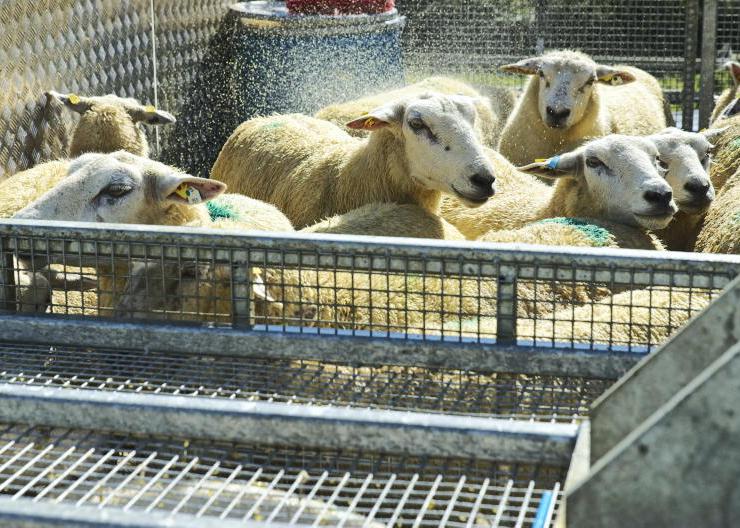Despite calls for an end to calendar-based farming in NI, there is little prospect of a change to the slurry closed period in the near future.
Among those keen to find a better solution has been has been Agriculture Minister, Edwin Poots, who said earlier this year that he wanted a more flexible regime in 2021, based on scientific evidence and relying on data relating to weather and ground conditions.
But the advice from his own scientists is that while this is theoretically possible, it would involve a costly investment in high precision rainfall and soil moisture data.
“There is a way, but it needs investment and work to get there, and we are in no position to do it at this point in time,” Dr Donnacha Doody told an AFBI online event.
The agri-environment researcher also pointed out that a new system would be likely to limit slurry spreading to when soils are at field capacity (where excess water has run off) or drier. But work at AFBI Hillsborough has shown that across a 10-year average, on just 3% of days in January did soils meet this minimum requirement.
Fewer days
And given how much rain NI receives throughout the year, there would actually be fewer days available for spreading slurry under this new system, than we currently have at present.
The main issue around slurry spreading is the loss of phosphorus (P) in the slurry to waterbodies.
Over the last 20 years, significant improvements in water quality have been made, but since 2010-2011, the concentrations of P in rivers has been rising, with 61% of waterbodies in NI above the target required to achieve ‘good’ status, said Doody.
Read more
Slurry foam – what’s the cause?
Tackling ammonia to cost millions – Poots
Despite calls for an end to calendar-based farming in NI, there is little prospect of a change to the slurry closed period in the near future.
Among those keen to find a better solution has been has been Agriculture Minister, Edwin Poots, who said earlier this year that he wanted a more flexible regime in 2021, based on scientific evidence and relying on data relating to weather and ground conditions.
But the advice from his own scientists is that while this is theoretically possible, it would involve a costly investment in high precision rainfall and soil moisture data.
“There is a way, but it needs investment and work to get there, and we are in no position to do it at this point in time,” Dr Donnacha Doody told an AFBI online event.
The agri-environment researcher also pointed out that a new system would be likely to limit slurry spreading to when soils are at field capacity (where excess water has run off) or drier. But work at AFBI Hillsborough has shown that across a 10-year average, on just 3% of days in January did soils meet this minimum requirement.
Fewer days
And given how much rain NI receives throughout the year, there would actually be fewer days available for spreading slurry under this new system, than we currently have at present.
The main issue around slurry spreading is the loss of phosphorus (P) in the slurry to waterbodies.
Over the last 20 years, significant improvements in water quality have been made, but since 2010-2011, the concentrations of P in rivers has been rising, with 61% of waterbodies in NI above the target required to achieve ‘good’ status, said Doody.
Read more
Slurry foam – what’s the cause?
Tackling ammonia to cost millions – Poots









SHARING OPTIONS